Search Images
Browse Content (p. 1600)

Image
Arch of Augustus, Rimini
The Arch of Augustus at Rimini (called Ariminum in Roman times) was dedicated to the Emperor Augustus by the Roman Senate in 27 BCE and is the oldest Roman arch that survives.

Image
Tiberius Bridge, Rimini
Tiberius Bridge (Ponte di Tiberio) over the Ariminus river on the Via Aemilia in Rimini (called Ariminum in Roman times). It was constructed under Augustus and completed by Tiberius in 20 CE as the inscription sculpted on the inner part of...

Image
Roman Bridge over the Rubicon River
Roman bridge over the Rubicon river located in Savignano sul Rubicone. The Rubicon has been one of the world’s most famous rivers ever since Julius Caesar crossed it in 49 BCE. However the bridge does not date from Caesar's times. It was...
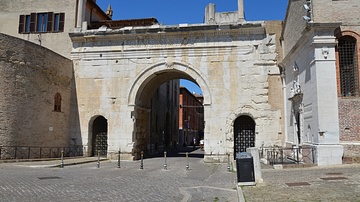
Image
Arch of Augustus in Fano
The Arch of Augustus in Fano (Italy) is a city gate in the form of a triumphal arch with three vaults that served as the entrance to the city of Colonia Julia Fanestris by the via Flaminia (modern-day Fano). The monument is dated to 9 CE...
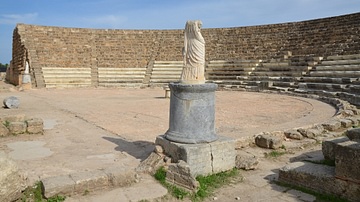
Image
Roman Teatre of Salamis, Cyprus
The Roman theatre of Salamis in Cyprus was built during the reign of Augustus (beginning of 1st century CE) and completed during the years of Trajan and Hadrian (beginning of 2nd century CE). It originally had 50 rows of seats (just 18 remain...
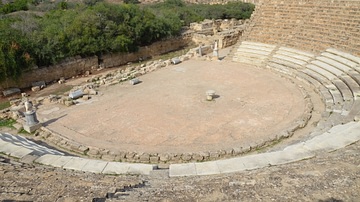
Image
Roman Theatre of Salamis, Cyprus
The Roman theatre of Salamis in Cyprus was built during the reign of Augustus (beginning of 1st century CE) and completed during the years of Trajan and Hadrian (beginning of 2nd century CE). It originally had 50 rows of seats (just 18 remain...

Image
The Gymnasium of Salamis, Cyprus
The Gymnasium of Salamis in Cyprus, with its columned palaestra, was built over the ruins of an earlier Hellenistic gymnasium in the 2nd century CE during Trajan and Hadrian's reign after Salamis had been greatly damaged in 116 CE during...
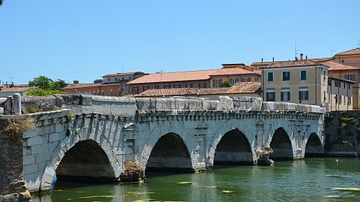
Image
Tiberius Bridge, Ariminus River
Tiberius Bridge (Ponte di Tiberio) over the Ariminus river on the Via Aemilia in Rimini (called Ariminum in Roman times). It was constructed under Augustus and completed by Tiberius in 20 CE as the inscription sculpted on the inner part...

Image
The Gymnasium Pool of Salamis, Cyprus
Marble pool at the north-east corner of the Gymnasium's portico of Salamis in Cyprus. The pool is surrounded by headless statues dating back to the 2nd century CE (Trajanic/Hadrianic).
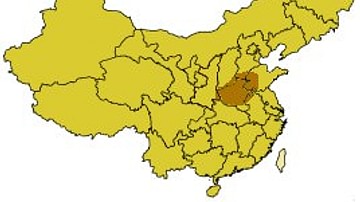
Image
Xia Dynasty
A map of China indicating the territory controlled by the Xia Dynasty (c. 2070-1600 BCE).